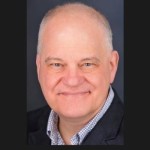Occupational Engagement: Use Networking to More Effectively Make Complex Decisions
November 19, 2015Introduction from Alana:
I first met Tom Krieshok after a talk I gave to a group called Center for Spirit at Work. My message that morning was about identifying and pursuing one’s purpose. Tom approached me following the discussion for two reasons: One, he has a sister named Alana! And, two, because one of his fields of research is around complex decision-making called Occupational Engagement for which networking and connecting with others play a major role.
Tom is a licensed psychologist serving as Professor in the Department of Educational Psychology at the University of Kansas where he teaches graduate courses in vocational psychology, Evidence Based Practice, diagnosis and psychopathology, and psychotherapy practica. He has been recognized with countless honors and accolades based on his work. Today, he generously shares some of his findings with CLC. Join me in welcoming Dr. Krieshok to our community.
————————————————————————————————————–
Guest post from Dr. Thomas S. Krieshok, Ph.D., Professor, Department of Educational Psychology, University of Kansas
 Making decisions about work is complicated, but we can make wiser decisions when we have enriched the two mental systems that operate in the decision making process. One of the ways we do that is by something called occupational engagement, and networking is a critical piece of that.
Making decisions about work is complicated, but we can make wiser decisions when we have enriched the two mental systems that operate in the decision making process. One of the ways we do that is by something called occupational engagement, and networking is a critical piece of that.
Research in cognitive science and behavioral economics suggest that decision making is pretty complicated, and in many ways not at all how it seems. To take a simple everyday example, if I ask you why you had Cheerios for breakfast this morning, you would reflect on that choice, and give me reasons. And while it feels like those reasons were the ones that you used this morning when you opened the cupboard, the part of the brain that comes up with reasons is different from the part of the brain that actually made the choice. So to some extent, what you really report to me is the answer to the related question, “Why might someone like me have chosen Cheerios for breakfast?”
For breakfast choices, this is not really a serious matter, but if you are trying to make a complex decision, like who to date or what field of study to pursue, it becomes critically important, because as Mark Twain once said, “It ain’t what you don’t know that gets you into trouble. It’s what you know for sure that ain’t so that gets you into trouble.” When faced with complex decisions, where much of the actual decision making work goes on outside of conscious awareness, there are many things that influence our decisions that we might never become aware of.
But there are things we can do to make it more likely we will still choose wisely, no matter how complex the decision might be. Over the years my research team at KU has developed a model that includes three elements of career decision making, the rational brain, the intuitive brain, and something we call occupational engagement, which just means doing things that will make both your rational and intuitive decision making tools more informed and less naive. Examples of occupational engagement include job shadowing, informational interviewing, all kinds of networking, and just talking to people you know about their work and workplaces.
Engagement acts on our decisions in two very important ways. By being out in the world, talking to people about work (and non-work), I learn things. I learn facts that I can return to later when I need to make a decision, facts like how much teachers make for a nine month contract. But I also learn less tangible things that would be hard for me to put in a note, like when I sit in the back of Mr. Jones’s high school geometry class, I have a sense that this is something I myself could do, I would be good at it, and I might be inspirational to high school students. I might not even use words to describe it, but the point is, some of what I learn via engagement is stuff I can access and put to use in a rational, conscious process. And some of what I learn via engagement is stuff that is catalogued unconsciously and is only available to unconscious processes. Given that those unconscious processes play a significant hand in decisions, I want to be as engaged as possible, to make me as smart (consciously and unconsciously) as possible. Our research shows that people who are more occupationally engaged do better in school and in work.
Want more on this topic? Take a look at…
Krieshok, T. S., Black, M. D., & McKay, R. A. (2009). Career decision making: The limits of rationality and the abundance of non-conscious processes. Journal of Vocational Behavior, 75, 275-290.
Krieshok, T. S., Motl, T. C., & Rutt, B. T. (2011). The evolution of vocational psychology: Questions for a postmodern applied discipline. Journal of Career Assessment, 19 (3), 228-239.

